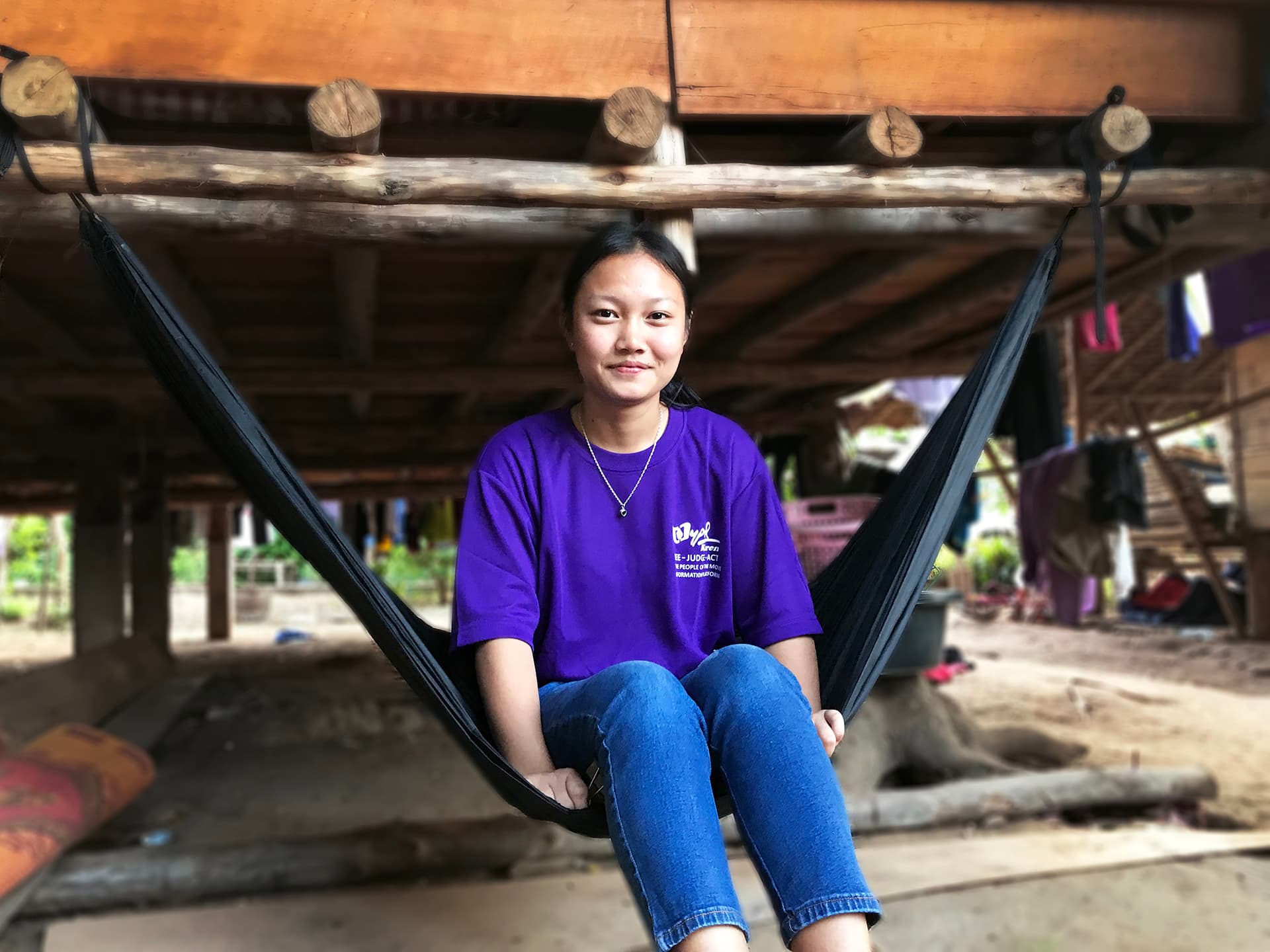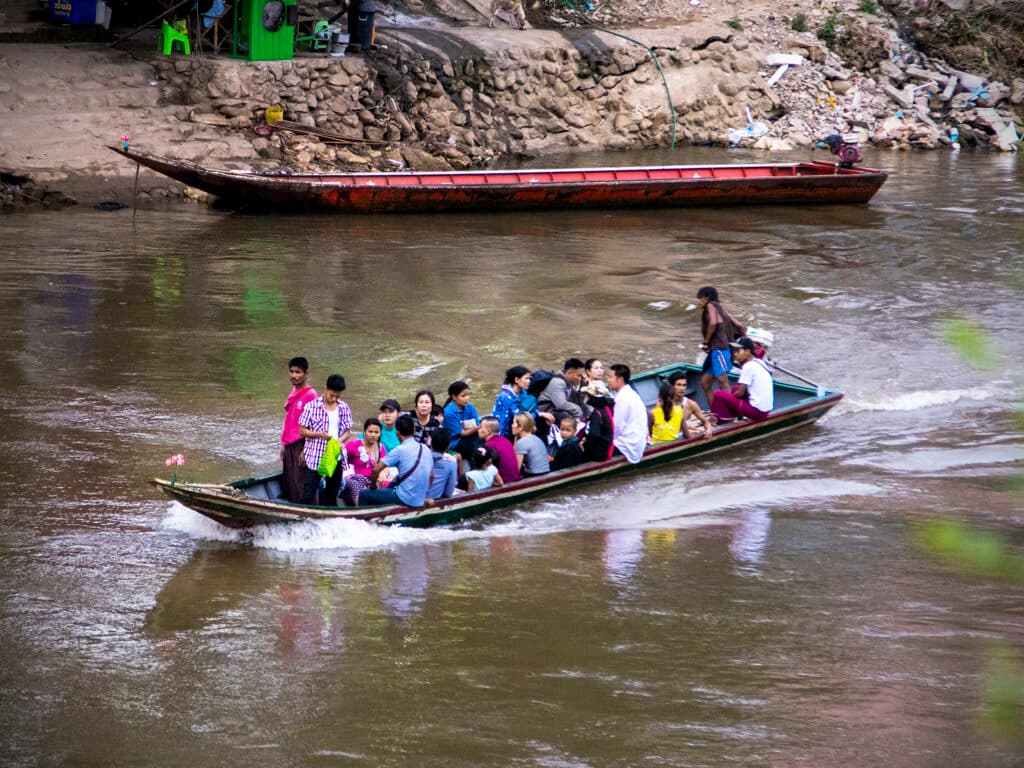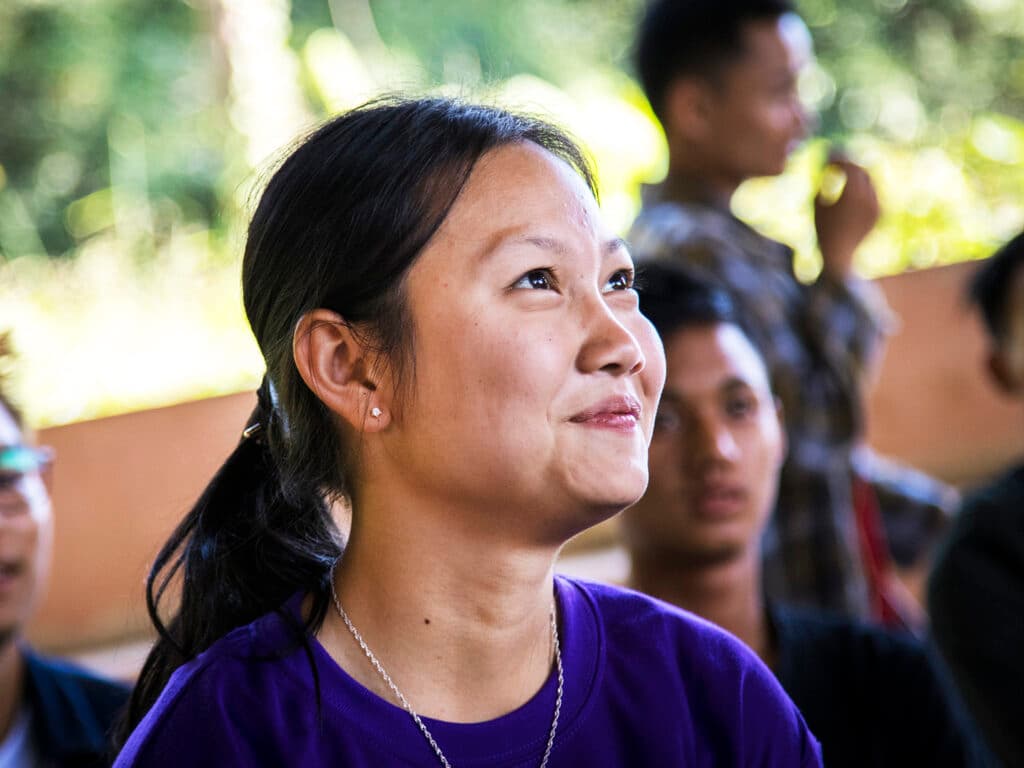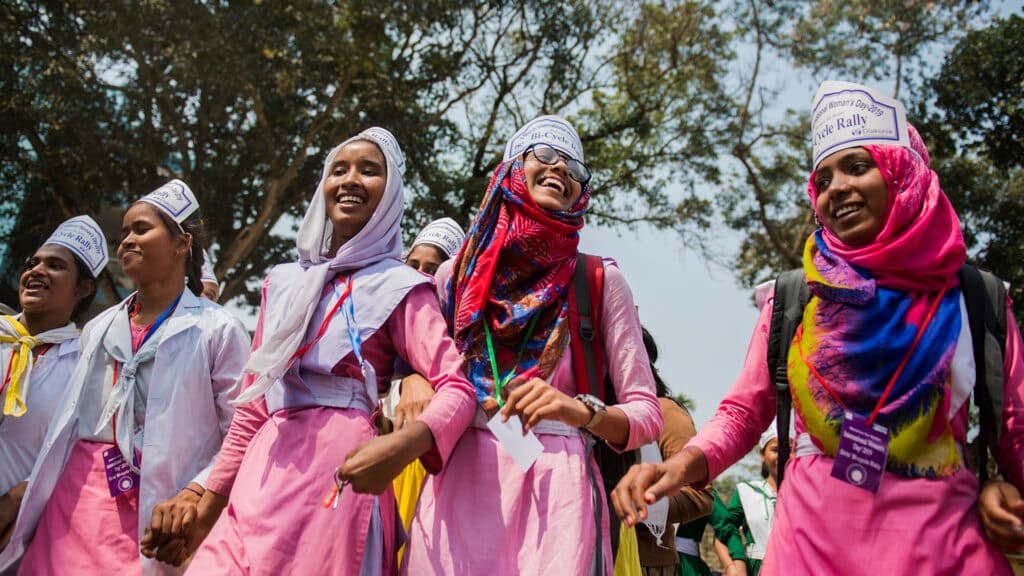
“Like a bird in a cage”
For more than 30 years refugees from Myanmar have lived in camps along the border to Thailand. And every day people keep running away from oppression, violence, and poverty in the search for a better life. But the support to the refugee camps is decreasing and the situation for migrants is becoming more and more vulnerable. That is why Diakonia, along with Ecpat, started the Safe migration project.
Migrants and refugees in Thailand live and work in the shadow of society. Refugees are allowed to live in camps among the border but aren’t recognized as refugees (the government of Thailand hasn’t ratified the UN 1951 Refugee Convention) and their possibilities are strongly limited. For example, refugees aren’t allowed to move about freely or work outside the camps. Both migrants and refugees need proper documents like work permits to be able to work in Thailand.
Live in constant fear
“If they work anyway, they risk being deported. Many illegal migrants live in constant fear of the police arresting them,” says Wipawan Khoonthaweelapphol, program officer, Diakonia Thailand.
She explains that there are “brokers”, that in return for a larger sum of money promise to arrange work permits.
“But for some cases, they either get false permits or none at all. And if they find work, they are paid below the minimum wage because the employer knows that they don’t have their papers and that they won’t complain about the police,” says Wipawan.
Safe migration addresses potential migrants and migrants in Thailand on how to come and work in Thailand legally. We run this project together with Ecpat and our local partners. The aim of the project is to protect the migrants and reinforce their own ability to exercise their rights so that they can live freely without being exploited.
Facilitate voluntary repatriation
Wipawan Khoonthaweelapphol explains that during the last few years the economic support to the nine refugee camps along the Thai border has diminished. There is no official decision to close the camps, but there are a lot of rumors. And since 2016 UNHCR facilitates voluntary repatriation to Myanmar with the support from the governments of Myanmar and Thailand.
According to Wipawans observation, it is mainly the older people in the camps that want to go back to Myanmar, persons with vivid memories of the country. The problem is the new generation that was born in the camps.

Today there are 95,681 refugees living in nine refugee camps in Thailand (as of June 2019). Most refugees are ethnic minorities from Myanmar, mainly Karen and Karenni, who live in nine camps in four provinces along the Thai-Myanmar border. Refugees in Thailand have been fleeing conflict and crossing Myanmar’s eastern border jungles for the safety of Thailand for nearly 30 years. (Source: UN)
“They've lived in the camps all their lives so they have no connection with Myanmar. At the same time, they can’t leave the camps and explore Thailand since they don’t have any papers or work permits,” says Wipawan Khoonthaweelapphol, program officer Diakonia Thailand.
They live in a sort of in-between, a limbo.
Fled the armed conflict
One of these youths is 20-year-old Ella who belongs to the ethnic minority Karen. She came to the refugee camp in Thailand in 2007 along with her parents, two brothers and an older relative. They fled Myanmar due to armed conflict in her home village, and because her parents wanted to give her the opportunity to study.
In 2015 she was able to leave the camp for a sort of boarding school, but her parents remain in the camp and neither they nor Ella have any ID documents or papers that make it safe for them to stay in Thailand (outside of the camp and school).
“It is hard because we aren’t legal migrants. The teachers are our security, we can only go somewhere if they come with us,” she says.

Ella is grateful that her parents gave her the opportunity to study and says that in the future she would like to work helping others. Her hope is that in the future, refugees will have greater possibilities than she has had and better education.
“I feel like a bird in a cage. If you unlocked it, I would fly away!” Ella says.

Diakonia in Asia
In Asia, Diakonia cooperates with partner organizations in Bangladesh, Cambodia, Sri Lanka and Thailand. The work is co-ordinated from our regional office in Chiang Mai, Thailand.